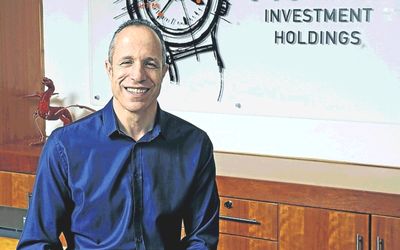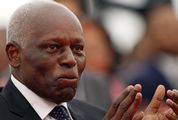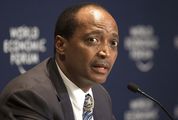PAVLO'S PERSPECTIVE: Innovation only wins when it is more than a product
by Pavlo Phitidis,
2015-05-12 06:24:18.0
ANY business operating in a competitive environment cannot thrive or survive without innovation. It is the reason for being in any startup business and for growth in established businesses.
It catalyses change and captures opportunities resulting from change. Change is certain. If you are doing what you’ve always done the way you’ve always done it, you risk your future. The antidote is innovation.
Innovation is more than an idea or an isolated moment. It’s a holistic process that goes beyond a product or service idea.
I encounter many businesses claiming an innovation by pointing to their products alone. Innovative products need innovative business processes to build, market and deliver to customers. Without these, dreams are shattered, opportunities lost and relationships destroyed.
The path to innovation is misleading. The notion of the lone individual working into the wee hours of the night in a backroom is a myth. Innovation is complex and builds over time.
Innovation is seeded by chance meetings, focus, collaboration, diversity and experimentation. Leadership curates this environment.
For innovation to form the genetic code, the DNA of the organisation, it needs to be led. Understanding how to create an innovative environment, spot an innovation and execute it is a vital leadership skill. Getting this wrong can be costly.
About 30 years ago, a large health insurer received a proposal to tackle health insurance differently by its employee, Adrian Gore. At the time this company was leading the industry and had never had it so good.
The idea was cannibalistic. Getting people healthier so that they need health insurers’ services less must have seemed abominable to market leaders at the time. Execution was not agreed.
Gore then did three things. He resigned, took the idea to a great bunch of entrepreneurs, gave up a lot of the equity in exchange for their cash and built an A-team to bring about Discovery Health.
A business built on innovation sells and buys differently. Engagements with customers are structured and captured, providing the data that suggests customer patterns and changing habits — the seeds of future innovative products.
Suppliers are expected to go beyond price and quality. Innovative companies seek to work with innovative suppliers. Through this they expect services that either cost less; or for the same price add more value, or provide a distinct advantage that they never enjoyed — the outcomes of innovation.
Such was Discovery’s experience of Qrent, co-founded and driven by DJ Kumbula. Qrent maps the use of computing in an organisation, identifying the few people requiring supercomputing capabilities and the majority of staff requiring reliable, standard computing capabilities.
Majority users form the core of Kumbula’s business. Acquiring three-year-old computing equipment, refurbishing it and supplying it on a three-year term to Discovery, Kumbula has slashed their computer acquisition costs by almost 50% while maintaining the performance levels of new computers. This is a product innovation in evidence.
Extending the innovation into business process is the next evolution for Qrent. Computing is acquired by IT departments yet Qrent’s business is anything but an IT sale. Its target is the finance department that often wants everything for nothing.
In Kumbula’s marketing efforts, when "computer" is mentioned the rest of the pitch falls on deaf ears and his audience refers him to IT.
Scarcity in opportunity is eliminated by innovation. Look at the dominance of Israeli tomatoes grown in the Negev Desert on European grocery shelves. Leadership in big and small business, government and universities led to tomatoes being grown in a desert. Where there was nothing, a dominant industry has been built. This kind of collaboration, driven by entrepreneurial leadership, is what will lead our economy through excellence.
• Phitidis is CEO of Aurik Business Incubator, director of Aurik Enterprise & Supplier Development, entrepreneurship commentator on Talk Radio 702 & 567 Cape Talk and presenter of The Growth Engines on Business Day TV.

Pavlo Phitidis. Picture: SUPPLIED
ANY business operating in a competitive environment cannot thrive or survive without innovation. It is the reason for being in any startup business and for growth in established businesses.
It catalyses change and captures opportunities resulting from change. Change is certain. If you are doing what you’ve always done the way you’ve always done it, you risk your future. The antidote is innovation.
Innovation is more than an idea or an isolated moment. It’s a holistic process that goes beyond a product or service idea.
I encounter many businesses claiming an innovation by pointing to their products alone. Innovative products need innovative business processes to build, market and deliver to customers. Without these, dreams are shattered, opportunities lost and relationships destroyed.
The path to innovation is misleading. The notion of the lone individual working into the wee hours of the night in a backroom is a myth. Innovation is complex and builds over time.
Innovation is seeded by chance meetings, focus, collaboration, diversity and experimentation. Leadership curates this environment.
For innovation to form the genetic code, the DNA of the organisation, it needs to be led. Understanding how to create an innovative environment, spot an innovation and execute it is a vital leadership skill. Getting this wrong can be costly.
About 30 years ago, a large health insurer received a proposal to tackle health insurance differently by its employee, Adrian Gore. At the time this company was leading the industry and had never had it so good.
The idea was cannibalistic. Getting people healthier so that they need health insurers’ services less must have seemed abominable to market leaders at the time. Execution was not agreed.
Gore then did three things. He resigned, took the idea to a great bunch of entrepreneurs, gave up a lot of the equity in exchange for their cash and built an A-team to bring about Discovery Health.
A business built on innovation sells and buys differently. Engagements with customers are structured and captured, providing the data that suggests customer patterns and changing habits — the seeds of future innovative products.
Suppliers are expected to go beyond price and quality. Innovative companies seek to work with innovative suppliers. Through this they expect services that either cost less; or for the same price add more value, or provide a distinct advantage that they never enjoyed — the outcomes of innovation.
Such was Discovery’s experience of Qrent, co-founded and driven by DJ Kumbula. Qrent maps the use of computing in an organisation, identifying the few people requiring supercomputing capabilities and the majority of staff requiring reliable, standard computing capabilities.
Majority users form the core of Kumbula’s business. Acquiring three-year-old computing equipment, refurbishing it and supplying it on a three-year term to Discovery, Kumbula has slashed their computer acquisition costs by almost 50% while maintaining the performance levels of new computers. This is a product innovation in evidence.
Extending the innovation into business process is the next evolution for Qrent. Computing is acquired by IT departments yet Qrent’s business is anything but an IT sale. Its target is the finance department that often wants everything for nothing.
In Kumbula’s marketing efforts, when "computer" is mentioned the rest of the pitch falls on deaf ears and his audience refers him to IT.
Scarcity in opportunity is eliminated by innovation. Look at the dominance of Israeli tomatoes grown in the Negev Desert on European grocery shelves. Leadership in big and small business, government and universities led to tomatoes being grown in a desert. Where there was nothing, a dominant industry has been built. This kind of collaboration, driven by entrepreneurial leadership, is what will lead our economy through excellence.
• Phitidis is CEO of Aurik Business Incubator, director of Aurik Enterprise & Supplier Development, entrepreneurship commentator on Talk Radio 702 & 567 Cape Talk and presenter of The Growth Engines on Business Day TV.




















Change: 0.40%
Change: 0.47%
Change: -0.49%
Change: 0.53%
Change: 1.03%
Data supplied by Profile Data
Change: 1.71%
Change: 1.28%
Change: 0.40%
Change: 0.00%
Change: 1.64%
Data supplied by Profile Data
Change: -1.27%
Change: 0.00%
Change: 0.05%
Change: -0.08%
Change: 0.35%
Data supplied by Profile Data
Change: -0.02%
Change: 0.21%
Change: -0.06%
Change: 0.53%
Change: 0.70%
Data supplied by Profile Data